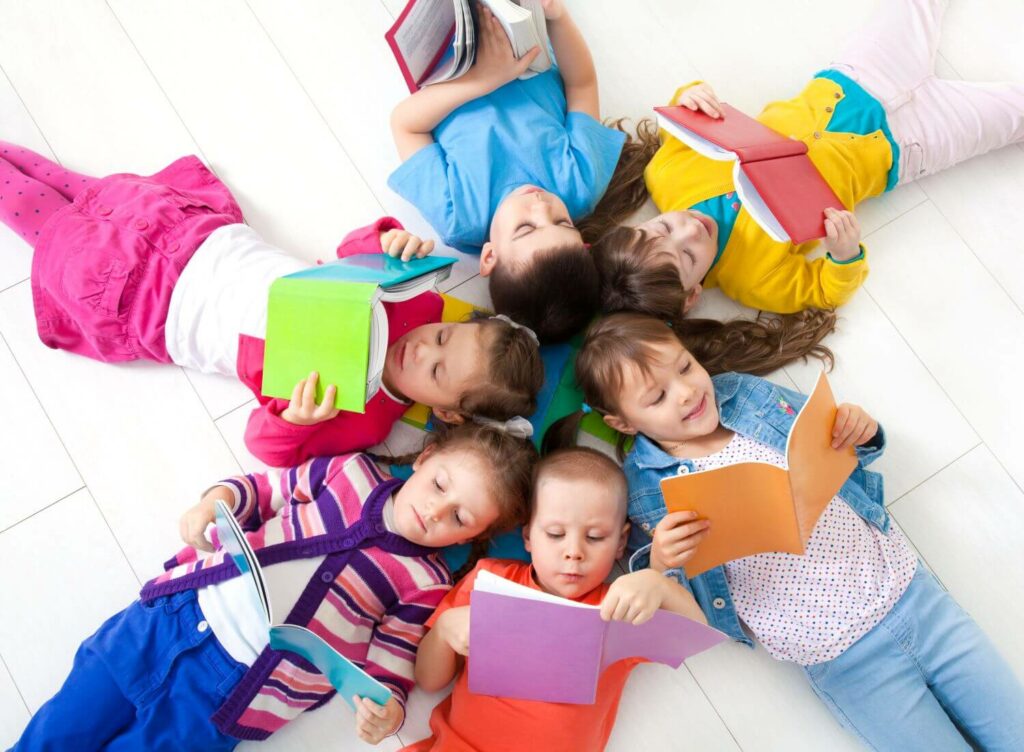As our children get older, it becomes more essential for us to help our children understand themselves better, which is where social emotional learning can be an invaluable tool. Social emotional learning is where your child develops the skills of interpersonality, self-awareness, and self-control. If you, as a parent, feel like you are not able to cope with everyday challenges, you are not alone, but you must remember that your children will pick up on your emotional cues.
People with strong social emotional skills have the ability to cope with everyday challenges, for example, controlling impulses, managing their emotions, problem-solving and so much more. But when it comes to social development and social emotional learning, there are many different approaches we can use, for example, practicing problem-solving skills and giving our children more responsibility, but one of the best tools is literature.
Why is this, and how can we incorporate social emotional learning through books?
How Books Cultivate Social Emotional Learning in Children
Social emotional skills help people to manage their emotions, set goals, be more empathetic, and improve their quality of life through responsible decisions and positive relationships. Literature is the perfect playground for learning about social and emotional development and can help in the following ways:
It Exposes Our Children to Other Types of Interactions
Showing different interactions in stories, and focusing on different forms of them, whether positive, negative, conflict-based, and so forth gives our children a greater bank of knowledge in terms of the wealth of interpersonal relationships and interactions that exist out there.
Showing our child interactions between a bully and their victim may mean an uncomfortable subject matter and one that we may shy away from, but it is an essential one because it allows you and your child to discuss possible scenarios outside of what happens in the book.
It’s also important to note that if the story itself has a positive outcome, for example, the victim overcoming the bully through the moral high ground or defending themselves, you don’t just discuss just the solutions, but the emotions that come with it.
Increasing Empathy Emotions
There is evidence to show that our brains treat fact and fiction similarly when it comes to characters, which makes sense if you have been involved in a story to the point you become emotionally attached to the characters.
Literature becomes a fantastic medium for your child to start exploring and identifying characters and their associated feelings, obstacles, and motives. Showing your children different stories where a child is going through a similar issue or one that can be mirrored in your child’s life allows them to learn from what the character has done.
Fiction allows our children to learn from experiences that have never actually happened to them which can help our children to start developing tools and tactics within a safe setting. The book is another world completely, and as a result, it is something that can be put to one side if necessary.
How Do We Choose the Right Books?
Literature is a vast playing field. The answer completely depends on what your child needs to learn, and whether this is fortitude, resilience, or managing anger and aggression, there are a variety of books out there to get your child started, including a whole heap of books available at this link.
When a relatable character navigates experiences, solves problems, and most importantly allows your child to see themselves in that character, this will empower them greatly, so it’s essential to let your child lead the way and see characters they have great empathy for.
How Else Can We Teach Social Emotional Learning?
Literature is an amazing resource, but it’s important to remember that not all children are able to lose themselves in the world of a story. There are other ways for you to implement this via social emotional learning activities, including the following:
Play
Incorporating this through play increases confidence and negotiation.
Problem-Solving
This helps to encourage healthy learning about relationship-building, regardless of the scenario, and allows people to work together to tackle a task while encouraging critical thinking.
Creative Writing
This gives the children the ability to create their own world, especially if they have obstacles to reading. It helps them to process their emotions and channel them into something that showcases how they feel.
Reflection and Mindfulness
This gives our children the opportunity to look back on how a day has gone and what went well and what didn’t.
Social emotional learning is an essential component, and the sooner your child can develop the necessary skills, the better and more well-rounded they will be.



